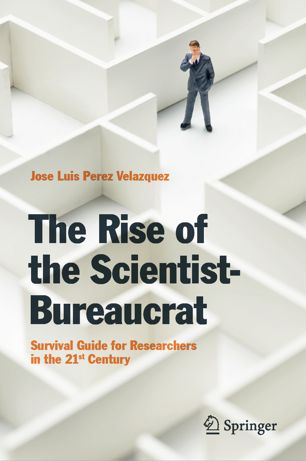

Most ebook files are in PDF format, so you can easily read them using various software such as Foxit Reader or directly on the Google Chrome browser.
Some ebook files are released by publishers in other formats such as .awz, .mobi, .epub, .fb2, etc. You may need to install specific software to read these formats on mobile/PC, such as Calibre.
Please read the tutorial at this link: https://ebookbell.com/faq
We offer FREE conversion to the popular formats you request; however, this may take some time. Therefore, right after payment, please email us, and we will try to provide the service as quickly as possible.
For some exceptional file formats or broken links (if any), please refrain from opening any disputes. Instead, email us first, and we will try to assist within a maximum of 6 hours.
EbookBell Team

4.1
50 reviews"Perez Velazquez has written a little gem that I advise reading to anyone persuing a scientific career, as well as for the general public interested in the sociological aspects of science. It alerts the reader about the rise of a new type of scientist, buried in bureaucracy and financial issues. In contrast to past generations, this "new scientist" is sadly left with minimal time to dedicate to creative work. It studies the consequences of this state of affairs, the problems associated with peer reviewing, the dilemma of funding innovative research, the nature of corporate academic culture and the trivialization of scientific achievement by grant agencies and universities. It also provides possible solutions for these problems. All this is magnificently exemplified and documented, including personal experiences from the author and a touch of humor illustrated in the accompanying cartoons. Despite the humor, it is a serious piece of work that would also be useful for the conscientious academic worried about the difficulties of the current research scene."
Marina Frantseva, MD, PhD
Jose Luis Perez Velazquez is a Spanish biochemist/biophysicist. He has a degree in Biochemistry and a PhD in Molecular Physiology & Biophysics. His research activities are mainly in the fields of the brain-behaviour relation at a high level of description, seekingprinciples of biological organisation. He worked as a senior scientist at the Hospital for Sick Children in Toronto and was Professor at the University of Toronto, where he taught a graduate course on consciousness and self-awareness, which derived in part from his book The Brain-Behaviour Continuum (World Scientific). He also edited the book Coordinated Activity in the Brain (Springer), and edited special issues for The Journal of Biological Physics, Frontiers in Integrative Neuroscience and Frontiers in Computational Neuroscience. Currently he is a Research Scholar at the Ronin Institute, where he continues to investigate a possible global principle, a scheme that combines theoretical studies and experimental observations, aimed at conceptualizing how consciousness arises from the organization of matter.